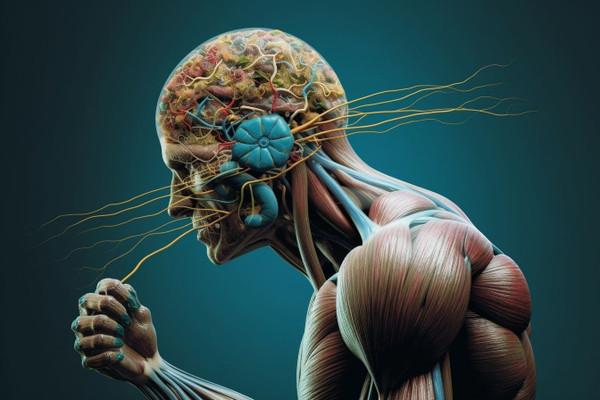Exercise and the Brain: The Neuroscience of Fitness Explored
Curated from: neurosciencenews.com
Ideas, facts & insights covering these topics:
9 ideas
·18.2K reads
150
5
Explore the World's Best Ideas
Join today and uncover 100+ curated journeys from 50+ topics. Unlock access to our mobile app with extensive features.
The Neuroscience Of Fitness
The neuroscience of fitness, a fascinating intersection of physical activity and brain health, is a rapidly developing area of research. This field explores the profound effects of regular exercise on our brain and nervous system, revealing significant implications for our overall health and quality of life.
One key discovery is the relationship between exercise and neurogenesis – the creation of new brain cells. This primarily occurs in the hippocampus, an area of the brain fundamental to learning and memory.
185
2.78K reads
Exercise And Neuroplasticity
Regular physical activity triggers the release of a protein called brain-derived neurotrophic factor (BDNF), which nurtures existing neurons and encourages the growth and development of new neurons and synapses.
Aerobic exercises like running and swimming are particularly beneficial. They not only stimulate neurogenesis but also increase the size of the anterior hippocampus, leading to improved spatial memory.
196
2.37K reads
Exercise And Brain Volume
Moreover, aerobic exercises have been linked to the preservation of white and gray matter in the frontal, temporal, and parietal cortexes, areas that typically shrink with age and are vital for cognitive function.
173
2.19K reads
Exercise And Brain Chemistry
Exercise also leads to an increase in the levels of certain neurotransmitters, including serotonin, dopamine, and norepinephrine. These chemicals play an essential role in mood regulation, mental alertness, and focus, potentially explaining why physical activity is often associated with reduced symptoms of depression and anxiety.
Exercise also helps manage and reduce stress, increasing concentrations of norepinephrine and endorphins, chemicals that moderate the brain’s response to stress and induce feelings of happiness.
183
1.94K reads
Exercise And Brain Detoxification
Regular physical activity also improves sleep quality, a critical factor in brain health. Enhanced sleep quality allows for better memory consolidation and more efficient toxin removal from the brain.
174
1.92K reads
Exercise And Brain Plasticity
Physical activity promotes brain plasticity, the brain’s ability to adapt and form new neural connections throughout life. This is especially important for recovery from a brain injury and counteracting the cognitive decline associated with aging.
169
1.82K reads
Exercise And Cognitive Functions
Additionally, exercise can enhance various cognitive functions, including attention, working memory, executive function, and cognitive flexibility. The prefrontal cortex, a brain area responsible for these functions, appears to respond positively to physical exercise, likely due to the increased blood flow, which delivers more oxygen and nutrients to the brain.
169
1.71K reads
Exercise Beyond The Brain
The benefits of fitness extend beyond the brain. Regular physical activity reduces inflammation in the body, which can positively impact the brain as chronic inflammation is tied to various neurological conditions, such as Alzheimer’s and Parkinson’s disease.
173
1.72K reads
The Takeaway
Despite these promising findings, there’s still much to explore in the neuroscience of fitness. Questions remain about how different forms of exercise (such as aerobic versus resistance training) impact the brain and how factors like age, genetics, and initial fitness level may influence these effects.
However, the current evidence strongly supports that regular physical activity has remarkable benefits for brain health and cognitive function, underscoring the value of integrating regular exercise into our daily lives for physical and mental health benefits.
162
1.71K reads
IDEAS CURATED BY
CURATOR'S NOTE
Despite ongoing research, the current evidence underscores the powerful role of physical activity in promoting brain health and cognitive function, emphasizing the importance of integrating regular exercise into our lifestyles.
“
Xarikleia 's ideas are part of this journey:
Learn more about motivationandinspiration with this collection
How to manage digital distractions
The impact of technology on mental health
The importance of setting boundaries
Related collections
Similar ideas
3 ideas
12 ideas
5 Incredible Ways Exercise Improves Brain Function
scitechdaily.com
5 ideas
This Is Your Brain on Exercise
outsideonline.com
Read & Learn
20x Faster
without
deepstash
with
deepstash
with
deepstash
Personalized microlearning
—
100+ Learning Journeys
—
Access to 200,000+ ideas
—
Access to the mobile app
—
Unlimited idea saving
—
—
Unlimited history
—
—
Unlimited listening to ideas
—
—
Downloading & offline access
—
—
Supercharge your mind with one idea per day
Enter your email and spend 1 minute every day to learn something new.
I agree to receive email updates
